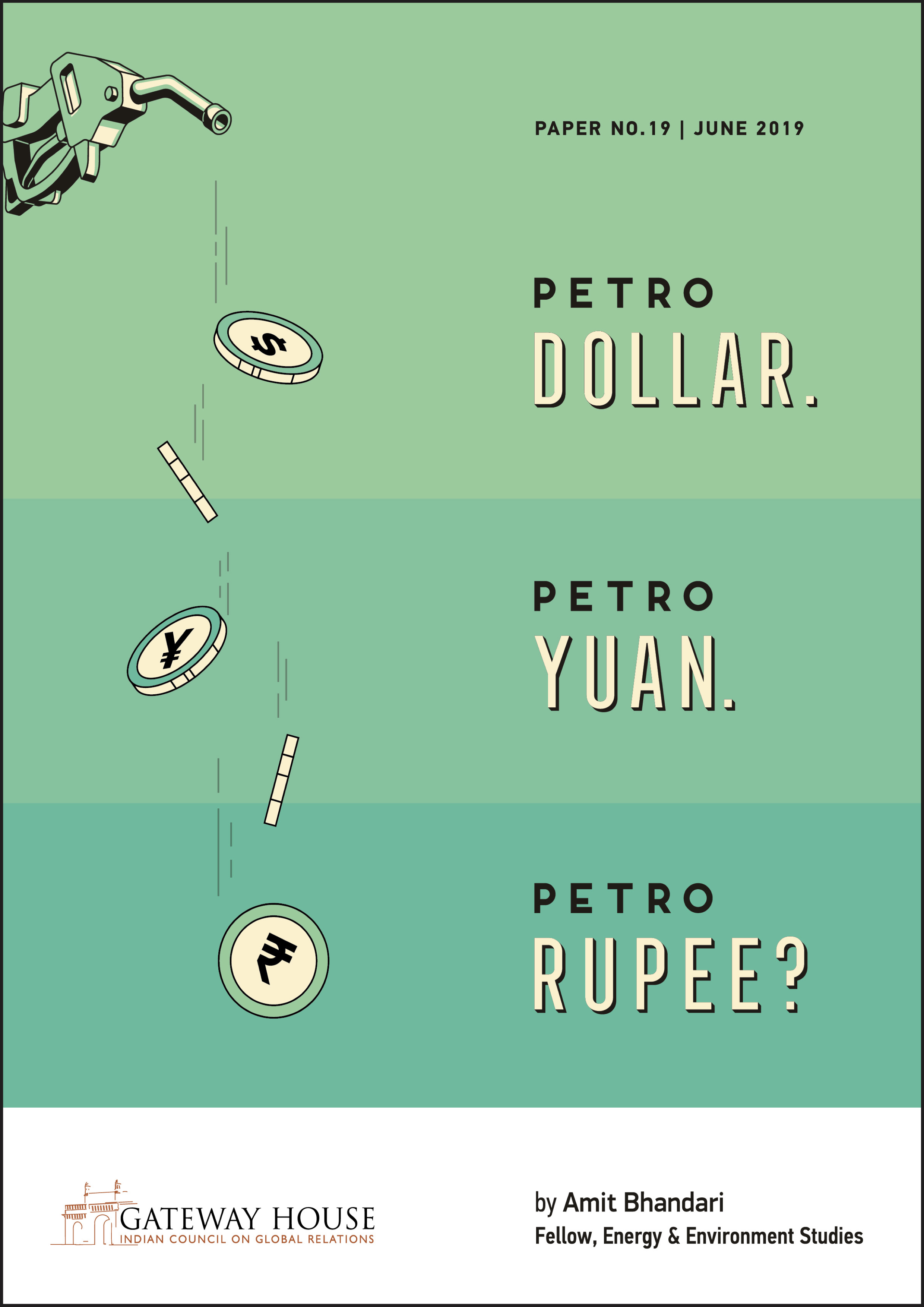Introduction: Creating a Petro-Rupee
Over the last two decades, every component of the global energy scenario has changed: demand, supply and energy-type. The only constant has been the U.S. Dollar as the currency of energy trade. Lately, the Chinese Yuan has emerged to challenge the Dollar. Can the Indian Rupee be a third player? India is now the world’s third-largest consumer and second-largest importer of energy. Its open market, transparent regulation and growing demand give it an opportunity to become the hub of a vibrant new oil market, simultaneously ensuring its energy security and raising the international profile of the Rupee.
This paper explores the possibility the Rupee could be the third currency in which energy is traded, and the challenges and opportunities it presents.
As its economy expands, India seeks a higher profile on the international stage, including in forums such as the United Nations and the World Trade Organization, and multilateral bodies such as the International Monetary Fund and the World Bank. India contends that these institutions represent a decades-old world order – one that needs reform to reflect new realities. This is true for global markets too. The world oil trade, in particular, is conducted almost entirely in dollars, on Western exchanges and based on pricing that doesn’t represent present oil demand.
Now, a confluence of events gives India a chance to engineer a shift in the world oil trade, in the process elevating its own global status and addressing its chronic problem with expensive energy imports. Such a shift can move India from the periphery to a more central position in the global financial system. It also can bring tangible benefits: India can create a Strategic Petroleum Reserve (SPR) at no cost to the public exchequer; companies and consumers can hedge their exposure to energy price fluctuations; and thousands of high-paying finance jobs can be created at revitalised Indian commodity exchanges.
China is trying to internationalise its currency and move the global oil trade to the Yuan. India must not cede this global role to China. China has already acquired strategic ports and assets in countries around India via its Belt and Road investments. Having a greater role in the international financial system will increase its leverage over India.

You can download the PDF version of this paper here.
Amit Bhandari is Fellow, Energy and Environment Studies, Gateway House.
This paper was exclusively written by Gateway House: Indian Council on Global Relations. You can read exclusive content here.
For interview requests with the author, please contact outreach@gatewayhouse.in. You can view the press release here
© Copyright 2019 Gateway House: Indian Council on Global Relations. All rights reserved. Any unauthorized copying or reproduction is strictly prohibited.


